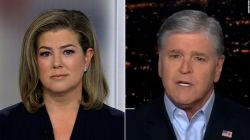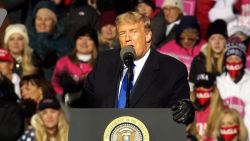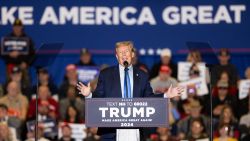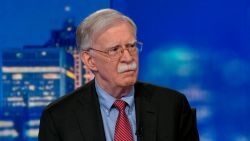With just 149 days until the 2020 election, it will be here before you know it. Every Sunday, I outline the 5 BIG storylines you need to know to understand the upcoming week on the campaign trail. And they’re ranked – so the No. 1 story is the most important of the coming week.
5. Is the VP race already over?
Joe Biden has said he hopes to announce his vice presidential pick around August 1. And that he and his vetting committee are looking at a dozen or so potential candidates.
But increasingly of late, it appears as though just one of those candidates – California Sen. Kamala Harris – has emerged as the heavy favorite to be the pick.
Why? Well, Harris was already first on the list prior to the death of George Floyd and the subsequent protests against racism and police brutality around the country. But that outcry has solidified her status atop the pile as Biden seems more likely than ever to pick a woman of color as his VP.
Harris, who is African American and Indian American, would be the first woman of color on a national ticket for either major party – a significant historical moment when the country’s racial divide is on vivid display for all the world to see.
She also has a background in law and order – she is the former Attorney General of California – that would, presumably, put her in prime position to lead a significant reform of policing in this country if the Biden-Harris ticket wins in the fall. (Harris has also worked hard to take some of the sharper edges off of her record as a prosecutor in California.)
Of course, until the pick is made, there’s always a chance that Biden looks elsewhere. But Harris is the obvious choice at the moment.
4. The cracks are starting to show, but …
Over just the past few days, we’ve seen condemnations of President Donald Trump from his former Secretary of Defense, his former chief of staff, his former director of national intelligence and one-time GOP eminence grise Colin Powell.
The New York Times is reporting that many of the party’s most notable names – including former President George W. Bush – won’t be voting for Trump in November. (A spokesman for Bush pushed back on that report Sunday morning.)
And yet, the party establishment is still largely silent. Senate Majority Leader Mitch McConnell (R-Kentucky) appears to be in head-in-the-sand mode, insisting that he’s just not going to be engaging in questions about how Trump has handled the protests surrounding the death of George Floyd.
When Trump tweeted late last week that he would endorse “any candidate … good or bad” against Sen. Lisa Murkowski (R-Alaska) following her siding with former Secretary of Defense James Mattis’ critique of the President, it didn’t merit any sort of defense from her colleagues.
The disconnect between the party’s former leaders – and former members of the Trump administration – and those still in office is remarkable.
The question going forward is whether the latest spate of out-of-office Republicans coming out against Trump changes the dynamic for those still in office. In short: Is there safety in numbers?
My guess? No.
3. Biden hiding?
While the former vice president took a slightly larger public profile over the past week – as the protests enveloped the country – the truth is that he has been nearly invisible for much of the last few months.
Some of this is born of necessity. Biden, at 77, is a prime target for the coronavirus – and his decision to largely stay at (and near) his home in Delaware makes good medical sense.
Some, it would seem, is born of strategy. The truth is that the less news Biden makes, the better for him. While he has largely been relegated to background noise amid the country’s struggle against Covid-19, his numbers against Trump have strengthened. (More on that below.)
View Trump and Biden head-to-head polling
And on the occasions where Biden has ventured out into the off-script world, he’s struggled mightily. His now-infamous “you ain’t black” gaffe in an interview with Charlemagne tha God drove several days of negative news coverage – providing Trump a respite from the ongoing scrutiny over his handling of the coronavirus pandemic.
For Biden, who is notoriously gaffe-prone, his best approach – for as long as he can get away with it – may well be to give scripted speeches and remarks and avoid doing anything to draw the spotlight onto him.
That’s especially true if Trump continues to look as though he is withering under the bright lights.
Biden will travel to Houston, Texas, on Monday to meet privately with Floyd’s family and offer them his condolences, according to a Biden aide.
The former vice president will also tape a video message for Floyd’s funeral service on Tuesday, but Biden is not planning to attend the service because his team did not want to cause any disruptions with his Secret Service protection.
2. Swing State Slippage
Everywhere you look, there’s bad polling news for Trump.
On Sunday morning, the Detroit Free Press released a poll that shows him trailing Biden by 12 points in Michigan.
That comes just days after polls in Wisconsin, Arizona, Ohio and Texas suggested that Trump is running behind his performance in 2016 – at times badly. And his standing in national polling against Biden isn’t any better.
While Trump continues to insist publicly that all is well (“I think even before today, our polls were – the polls that I’ve seen and the polls that we do were looking very good,” Trump said Friday), there’s evidence just below the surface that the President is increasingly concerned.
As CNN reported on Friday, Trump met with his senior campaign staff late last week amid growing concerns that his standing in key swing states is slipping.
What can Trump do to reverse these swing-state struggles? He and his campaign are placing a huge bet that Friday’s surprisingly strong jobs numbers are the start of an economic recovery heading into the fall that will restore his standing in places like Michigan, Wisconsin and Ohio.
If not? He could be headed to a large-scale Electoral College loss.
1. The Chaos President
At a Republican presidential debate in December 2015, former Florida Gov. Jeb Bush made this prediction about then front-runner Donald Trump: “He’s a chaos candidate. And he’d be a chaos president.”
That quote proved deeply prescient. Trump as president has seemed to welcome chaos, using his Twitter feed to lash out in 100 directions at once – throwing chum in the water to see who responds and how.
Following even a single day of Trump tweets, comments and pronouncements is exhausting. It’s hard to know where to look. Or what to read. Or watch. There’s just so much – a flurry of activity, with everything moving so quickly that it’s hard to center any one thing in your line of vision.
Which, for the most part, is how Trump wants it. He believes that he thrives in this chaos, that he is able to navigate it in ways others can’t.
That chaos theory has taken a turn in recent weeks, however. The combined effect of the (still) ongoing coronavirus pandemic with the protests across the country has created a level of uncertainty that has people turning to the President for a stable response. And Trump’s chaos characteristics are an insufficient balm for those worries.
An NBC-Wall Street Journal poll released Sunday morning showed that 8 in 10 Americans believe that the country is out of control. Just 15% say it is under control.
That is bad news for Trump. No one likes to feel as though their world is rapidly spiraling out of control. And they like it even less when it feels as though their top elected leader is making that chaos worse rather than better.
It’s no accident, then, that – per above – Trump’s numbers are slipping in the swing states where he needs to win.
And here’s the problem for a chaos president: When people want stability and calm, you have no idea how to provide it to them.



















